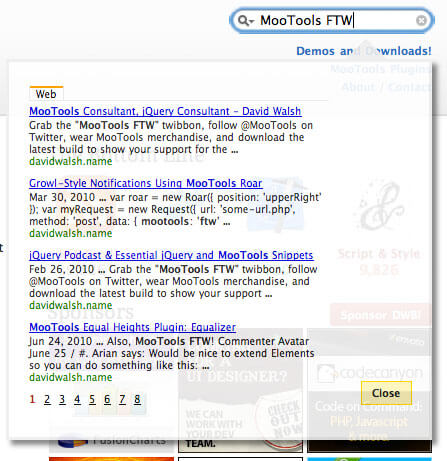React usePrevious Hook
Hooks are essential for the functional component pattern in React. One frequent logic comparison with class components was comparing a previous prop value with a current prop value via lifecycle methods. So what's an easy pattern for duplicating previous value comparisons in functional components?
The useRef and useEffect hooks allow us manage that same functionality in functional components via a custom hook -- usePrevious:
import { useEffect, useRef } from 'react';
export function usePrevious(value) {
const ref = useRef();
useEffect(() => {
ref.current = value;
}, [value]);
return ref.current;
}
// Usage
export function MyComponent(props) {
const { name } = props;
const previousName = usePrevious(name);
if(name != previousName) {
// Do something
}
}
I love this usePrevious hook, if only because I frequently forget to use the .current property and it helps avoid some boilerplate code. What are your thoughts on this pattern? Do you have any custom hooks you rely on?





Hi, I think the
useEffect()is not necessary:export function usePrevious(value) { const ref = useRef(); const prev = ref.current; ref.current = value; return prev; }The docs say not to set a ref during a render due to instability, useEffect ensures it runs after the render
This and more are available in the excellent ahooks package: https://ahooks.js.org/hooks/state/use-previous.
useLocalStorage. The one hook that I use a lot. Persisting filters of a table, search inputs, makes everything easy.
/** * Disable the emoji's */ function disable_emojis() { remove_action( 'wp_head', 'print_emoji_detection_script', 7 ); remove_action( 'admin_print_scripts', 'print_emoji_detection_script' ); remove_action( 'wp_print_styles', 'print_emoji_styles' ); remove_action( 'admin_print_styles', 'print_emoji_styles' ); remove_filter( 'the_content_feed', 'wp_staticize_emoji' ); remove_filter( 'comment_text_rss', 'wp_staticize_emoji' ); remove_filter( 'wp_mail', 'wp_staticize_emoji_for_email' ); add_filter( 'tiny_mce_plugins', 'disable_emojis_tinymce' ); add_filter( 'wp_resource_hints', 'disable_emojis_remove_dns_prefetch', 10, 2 ); } add_action( 'init', 'disable_emojis' ); /** * Filter function used to remove the tinymce emoji plugin. * * @param array $plugins * @return array Difference betwen the two arrays */ function disable_emojis_tinymce( $plugins ) { if ( is_array( $plugins ) ) { return array_diff( $plugins, array( 'wpemoji' ) ); } else { return array(); } } /** * Remove emoji CDN hostname from DNS prefetching hints. * * @param array $urls URLs to print for resource hints. * @param string $relation_type The relation type the URLs are printed for. * @return array Difference betwen the two arrays. */ function disable_emojis_remove_dns_prefetch( $urls, $relation_type ) { if ( 'dns-prefetch' == $relation_type ) { /** This filter is documented in wp-includes/formatting.php */ $emoji_svg_url = apply_filters( 'emoji_svg_url', 'https://s.w.org/images/core/emoji/2/svg/' ); $urls = array_diff( $urls, array( $emoji_svg_url ) ); } return $urls; }I’d recommend changing the example to use a property other than “name” as it makes it confusing to someone trying to understand why you pass in a name and expect a value.
A simple yet very useful hook! It saves time and helps avoid boilerplate code.
I’m not so sure this would work as expected. On the first render after a value change, the hook will correctly show the old value. But if the component re-renders for any reason, even if that value hasn’t changed, it will now show the current value. I suppose this is more like
useValueFromPreviousRender(value).Here’s an example – you can change the input text and see the previous value, but if you trigger a re-render with the button you’ll see the value update to the current text value: https://playcode.io/1668602